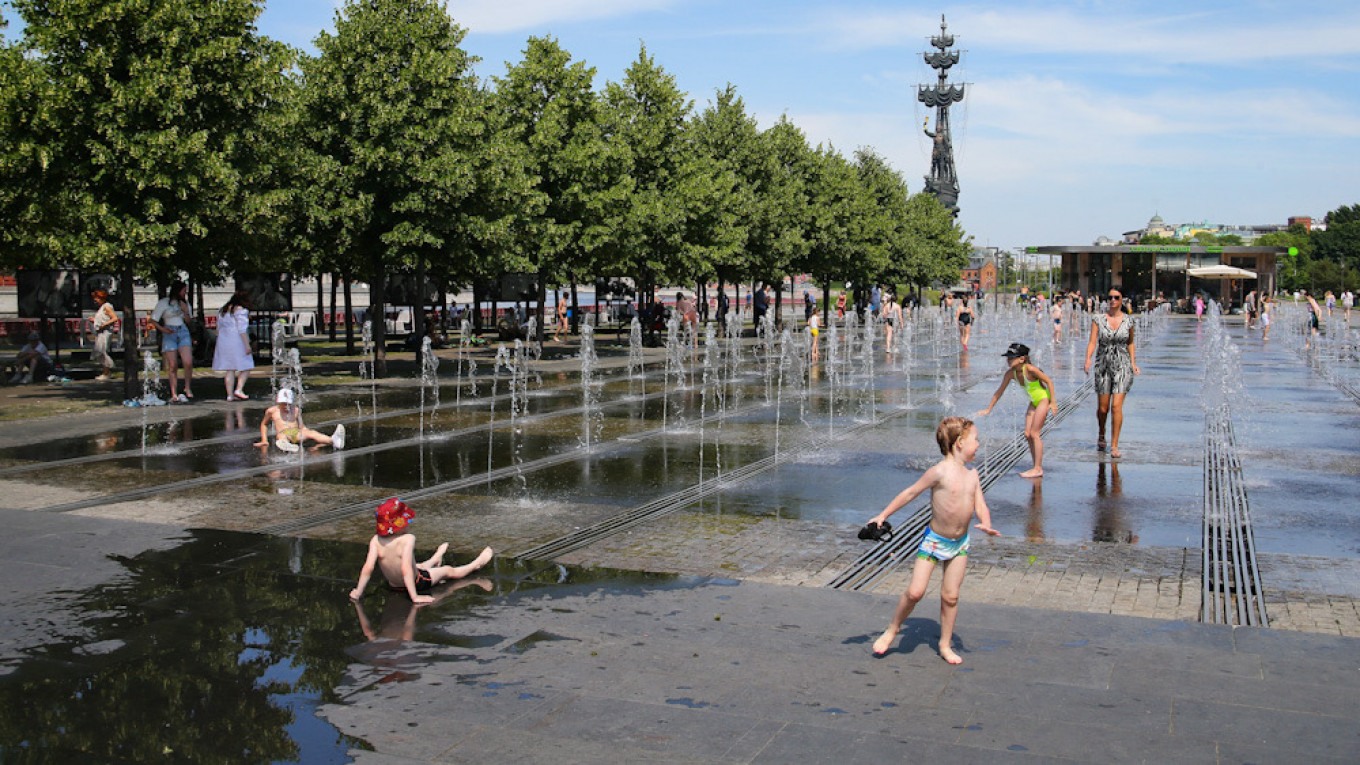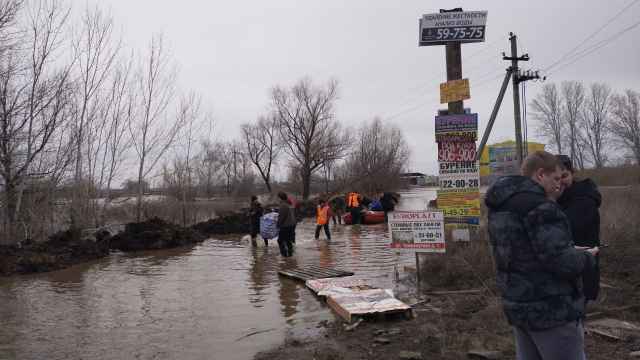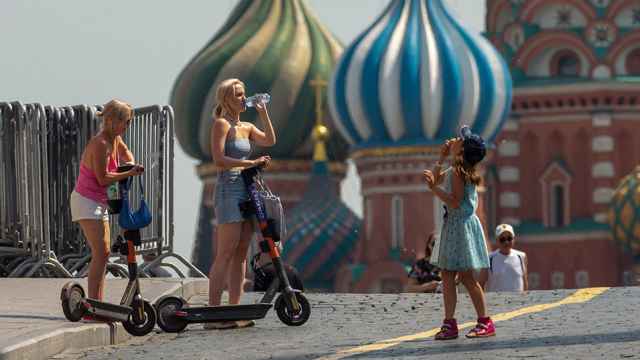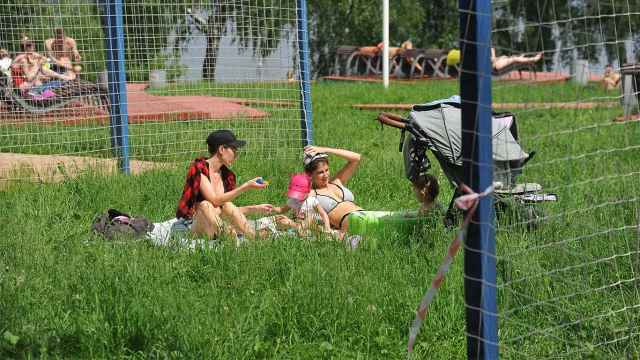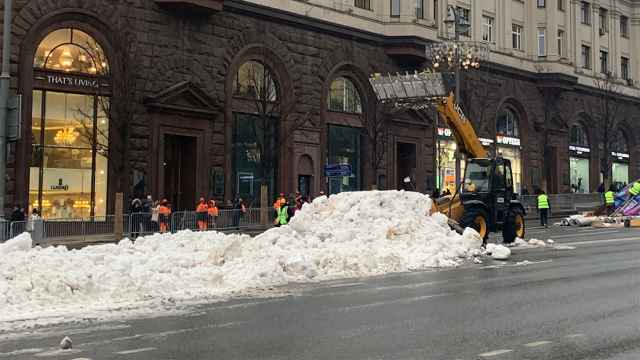Russia’s capital has experienced record-breaking temperatures throughout the month of June and is bracing for an all-time high in the next few days, according to meteorological data cited by the state-run TASS and Interfax news agencies.
Moscow recorded its hottest June 22 in 142 years Tuesday when the temperature hit 31.9 degrees Celsius. The day before, the city saw its hottest June 21 in 65 years when thermometers rose to 31.1 C.
The temperature in Moscow is likely to climb to 36 C in the next few days, beating the all-time record of 34.7 C set in 1901, Evgeni Tishkovets from the Phobos meteorological center said Sunday.
Other places in Russia are also experiencing extreme heat conditions.
St. Petersburg has just had three record-breaking hot days in a row, after experiencing other weather anomalies in May. The temperature on Monday rose to 30.7 C — 0.3 C higher than it was on the previously record-hot June 21 in 2006. Tuesday is likely to be another record-breaking day for the city, local meteorologist Alexander Kolesov told TASS.
Similar temperatures have even been recorded in the Arctic. On Saturday it was 31.1 C in Tyumyati in the republic of Sakha, which is 4,100 kilometers from Moscow and inside the polar circle. Siberia’s Kotelny Island — one of the northernmost pieces of land on Earth experiences a record-breaking temperature of 17.6 C on the same day.
The heatwave will break in Moscow next week, Tishkovets said.
Long-term, however, scorching summers are likely to become more common in Russia, as the country is heating up 2.5 times faster than the rest of the world.
The frequency of extreme weather events around the world has doubled over the past 20 years and the same dynamic is true for Russia, the head of Russia’s Hydrometeorological Research Center Roman Vilfand told the Ura.ru news website in June 2020.
Last year extreme heat caused record-breaking wildfires in Siberia, and experts have warned of a repeat this year. By the end of the 21st century, Moscow and St. Petersburg might be surrounded by temperate deserts instead of temperate forests, scientists at Aalto University predicted in a recent study.
A Message from The Moscow Times:
Dear readers,
We are facing unprecedented challenges. Russia's Prosecutor General's Office has designated The Moscow Times as an "undesirable" organization, criminalizing our work and putting our staff at risk of prosecution. This follows our earlier unjust labeling as a "foreign agent."
These actions are direct attempts to silence independent journalism in Russia. The authorities claim our work "discredits the decisions of the Russian leadership." We see things differently: we strive to provide accurate, unbiased reporting on Russia.
We, the journalists of The Moscow Times, refuse to be silenced. But to continue our work, we need your help.
Your support, no matter how small, makes a world of difference. If you can, please support us monthly starting from just $2. It's quick to set up, and every contribution makes a significant impact.
By supporting The Moscow Times, you're defending open, independent journalism in the face of repression. Thank you for standing with us.
Remind me later.


